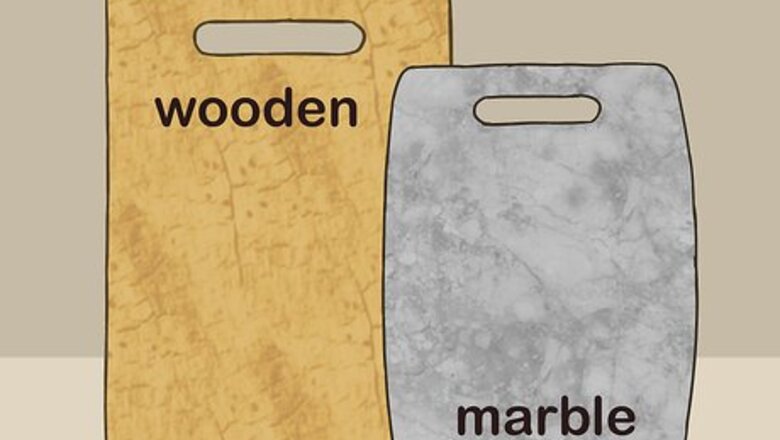
views
Using Your Knife
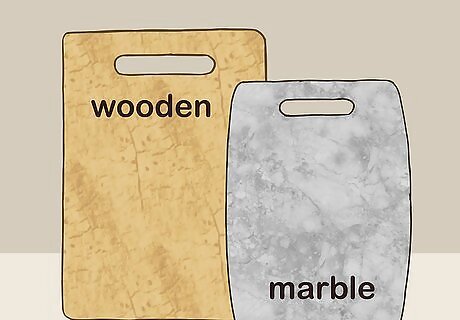
Always cut on a cutting board. Using marble, granite, or any other solid surface is too hard and unyielding for a kitchen knife. This can dull your knife much more quickly. Choose a wooden cutting board instead of one made of plastic or any hard, solid material, such as glass.
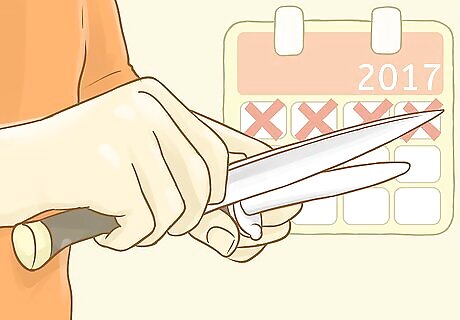
Sharpen and hone your knife regularly. You should sharpen your knife annually. Honing is similar to sharpening, but it focuses more on removing nicks and recalibrating the angle of the blade. You should hone more often than you sharpen. Some ways that you can sharpen your knife include: using an electric sharpener, sending it to a professional, or using a sharpening stone. You can find more specific instructions on how to sharpen your knife at this website: https://www.seriouseats.com/knife-skills-how-to-sharpen-a-knife.
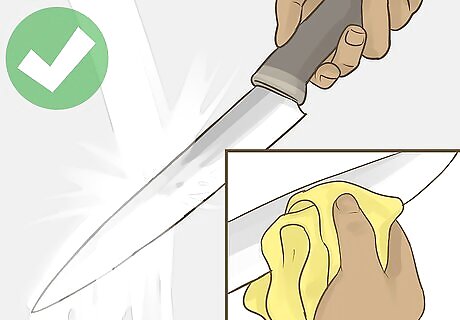
Keep your knife clean while you're using it. While cutting, frequently rinse it off with hot water and wipe it clean to keep food from building up on the blade. This prevents the blade from dulling and working less efficiently.
Cleaning Your Knife
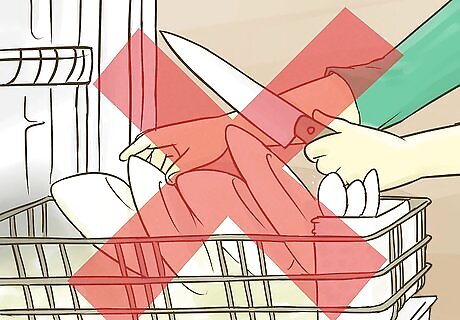
Never wash your knife in the dishwasher. The heat, moisture, and detergent can dull the knife blade and cause discoloration. Also, knives will sometimes get chipped from rattling around with other dishes in the dishwasher.
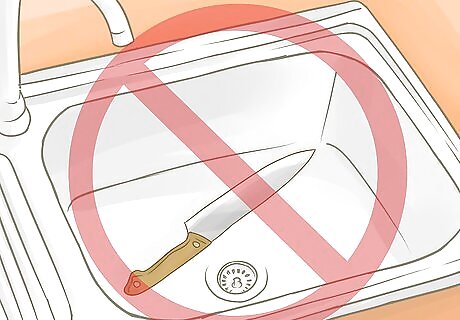
Don’t leave your knife in the sink. You should always hand-wash your knife with mild soap and hot water immediately after use to avoid corrosion, scratching, bending, or breaking. If needed, you can let your knife soak in soapy, warm water temporarily after use and before washing. Don't leave it in for more than a few minutes. Immediately after washing your knife, dry it with a hand towel. If you let your knife air-dry, it will be susceptible to molding or rusting. When your knife is sharing space with other utensils in the drying rack, it is also more likely to dull.
Storing Your Knife
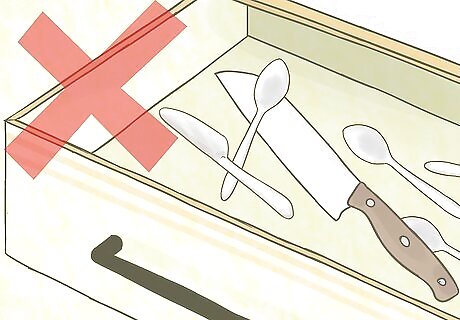
Don’t keep your knife in a drawer with other utensils. Breaking, chipping, and dulling are more likely to happen when your knife is stored freely. If you store your knives in a drawer, invest in a set of knife blade covers to minimize contact with other utensils.
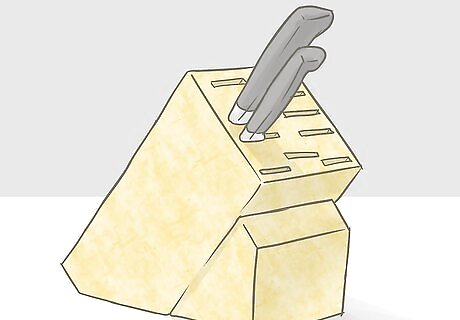
Store your knives in a kitchen knife block. This is the most common storage choice. Many knife sets will come with a block, but you can also purchase an empty knife block to store your knives in. This option is safe, allows you to keep all of your knives in one place, and also can help knives keep their edge longer. If you get your knife block separately from your knife set, you may discover that many of your knives don’t fit in the pre-sized slots.
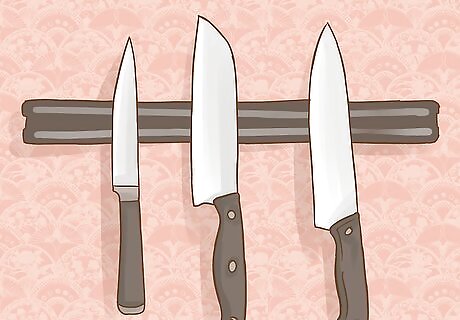
Keep your knife on a magnetic strip. Mount a magnetic knife rack on a wall in your kitchen and store your knives vertically. This method keeps your knives easily accessible while being safely off the counter. Most importantly, magnetic knife racks keep your knife blades stable. Magnetic knife racks aren’t a possible storage option if your knives are ceramic.
















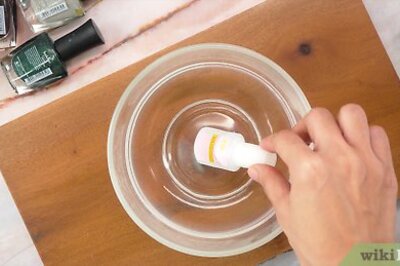



Comments
0 comment